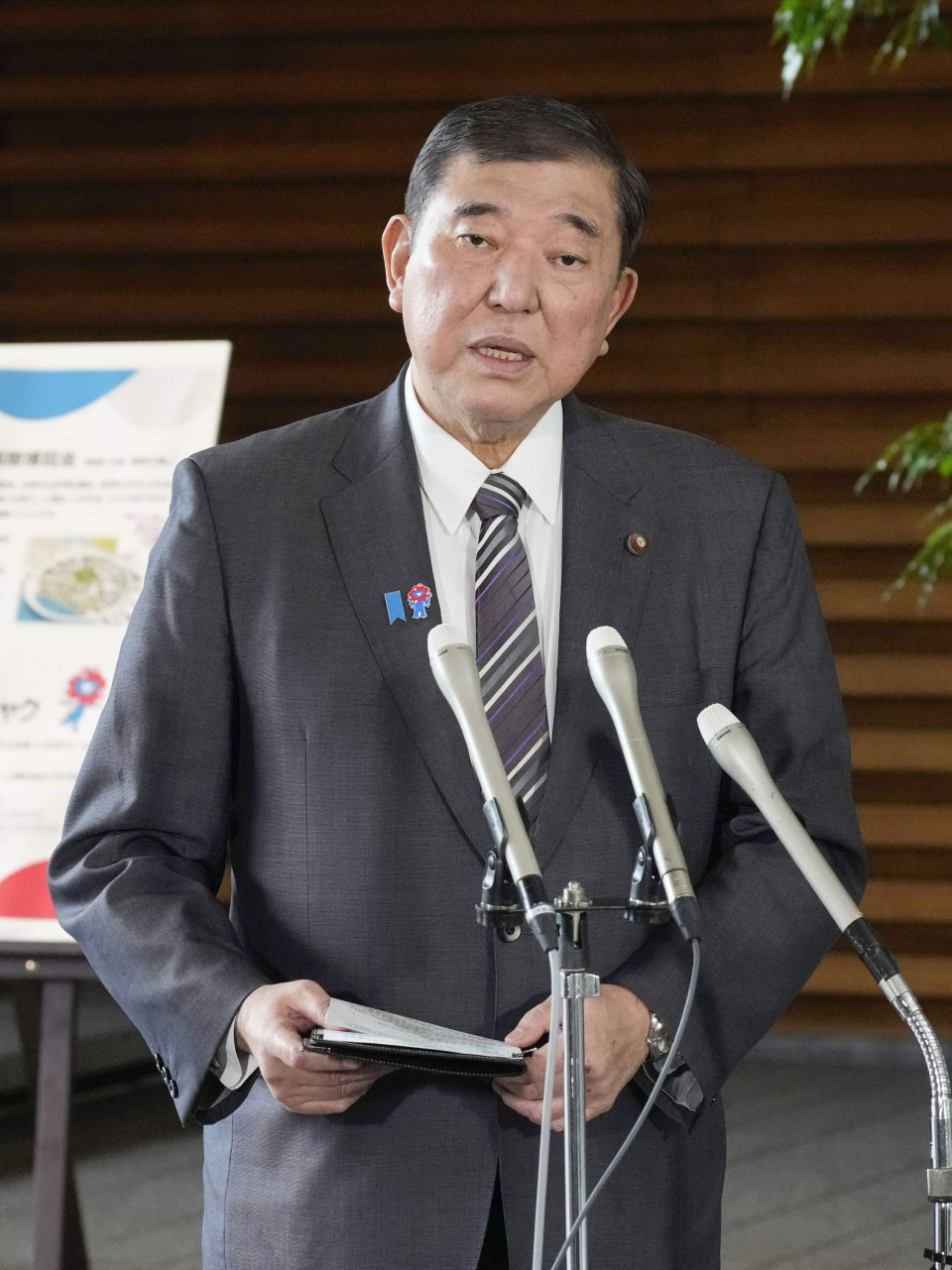Prime Minister Shigeru Ishiba said Thursday that Japan aims to make progress in ongoing tariff negotiations with the United States but will not sacrifice its national interests to reach a deal quickly.
Ishiba made the remarks ahead of a possible meeting with U.S. President Donald Trump on the sidelines of a Group of Seven leaders’ summit to be held in Canada from Sunday.

Japanese Prime Minister Shigeru Ishiba speaks to reporters at his office in Tokyo on June 12, 2025, following talks with leaders of the main political parties about tariff negotiations with the United States. (Kyodo) ==Kyodo
Japan’s chief tariff negotiator Ryosei Akazawa is expected to hold another round of negotiations with the United States on Friday, setting the stage for the meeting between the leaders.
Through rounds of ministerial negotiations, Japan has been urging the United States, its closest ally, to rethink its tariff policy and to explore a deal that can be mutually beneficial. Ishiba has made the case that increased Japanese investment will help create jobs in the United States.
“It’d be good to see certain progress made before meeting with the president at the G7. But what matters is a deal that benefits both Japan and the United States,” Ishiba told reporters.
“We will not prioritize reaching a deal quickly and undermine national interests,” he added.
Ishiba’s remarks came after U.S. Treasury Secretary Scott Bessent, a key figure in the bilateral tariff talks, said Wednesday the United States could extend its current 90-day pause on the implementation of “reciprocal” tariffs if trading partners engage in negotiations “in good faith.” The pause, if not extended, would expire in early July.
Trump separately said his administration is prioritizing negotiations with key trading partners like Japan and South Korea, adding that it will send out letters in “about a week and a half to two weeks” to inform them of what their trade deals would look like.
Ahead of his planned trip to Canada, Ishiba held talks with leaders from the opposition bloc to share the status of bilateral tariff negotiations and explain how his government is approaching the challenge, the prime minister told reporters.
The imposition of higher U.S. tariffs on imported cars, auto parts, steel and aluminum has already caused uncertainty about how Japan’s export-driven economy will fare. Japan also faces a reciprocal tariff rate of 24 percent, including the 10 percent baseline duty already in place.
Related coverage:
Bessent says 90-day tariff pause could be extended for key partners
Japan, U.S. eye Ishiba-Trump summit in Canada on G7 margins
Japan’s top negotiator eyes U.S. trip this week for 6th tariff talks
